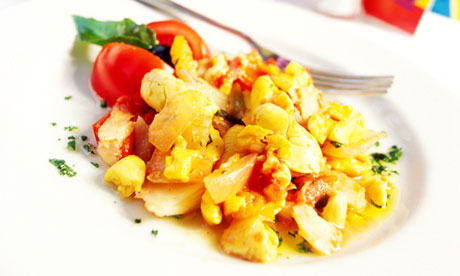
They do things differently in Jamaica, where my dad lives, particularly at breakfast. Boiled green bananas, fish and, at least a twice a week, porridge. He's a traditionalist. He's not about to start junking tradition in his 90s.
I tell Jeannette Hyde about him as, 5,000 miles away in Camberwell, we sit eating ackee and saltfish for breakfast with fried dumplings. She's drinking fruit tea. I have Tetley's made syrupy by condensed milk. "That's not terribly good for you," she says.
Jeannette's a former journalist, now a nutritionist, which takes her into interesting areas. Her latest is a research project: Understanding the breakfast habits of acculturated Jamaicans age 40-plus residing in London. Alternative title: England's Killing Me.
It's a story of transition. She was keen to discover how the Windrush generation break the fast after all this time in Britain. Do they turn – like the rest of the population – to the widely available products, full of sodium or sugar? Or do they even now stick to traditions brought from the West Indies? The answer: a bit of both.
That could be a good thing, another example of migrants successfully fusing what they find with what they bring. Only in this case, there has been what we might call transitional malfunction. Jeannette found that all the seniors she spoke to ate porridge and other dishes that kept them healthy in the West Indies, but that in each case something crucial was missing. How to explain the prevalence of diabetes and high blood pressure? Well, they ate porridge as always, but few now bothered to add the cinnamon, or to drink the bush tea cerassie – both anti-diabetics. They ate saltfish and ackee – the Jamaican national fruit – but few performed the trick of also drinking coconut water – readily available in the West Indies. The potassium in the coconut water counteracts the sodium in that and other meals. They ate dairy products, but whereas much of it in Jamaica was home-reared, ours comes, less healthily, from mass production. In Jamaica, they ate fruit; fruit was everywhere, often free. Here, it's expensive. Each omission small, but crucial in its way, for every culturally adapted diet must keep its checks and balances. Later, I sit down with rice and peas and curried goat, and think it all through.

